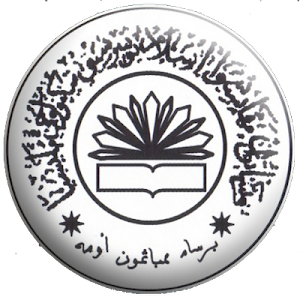Reviewer: Tengku Ahmad Hazri (Kuala Lumpur, Malaysia)
 |
|
|
|
|
This book echoes the voice of the new breed of Asians. Aptly entitled 'The Asian Renaissance', Anwar Ibrahim robustly asserts his optimism for Asians. He writes about the "East Asian Economic Miracle", argues for the Asians to stand up for their values and not be held in cultural servitude by the West. This typifies the new Asian, or modern Asian: bold, assertive and liberal. Perhaps this book should come as no surprise, given that he was, when the book was published, the Deputy Prime Minister and Finance Minister of Malaysia. Along with his one-time mentor, Dr. Mahathir Mohamad, they can be regarded as the architect of modern Malaysia - politically, economically and culturally.
The Asian Renaissance speaks out just what Asia is moving towards: independence and autonomy from the West. Anwar's vision for Asia thus lies in this book. Nonetheless, read critically and one will find that Anwar presents nothing original here. The abundance of quotations and excerpts is a catastrophic mistake. It leaves the central theme of the book, namely Anwar's thesis of an Asian renaissance, paling into insignificance and lurking beneath the thoughts of other writers.
Throughout the book, Anwar Ibrahim persistently argues for a "middle path" which he purports to apply to virtually every aspect of life, be it in politics or economics. Thus he discredits communism and recognises the impossibility of an absolute democracy. Democracy should be controlled - by religion or something else - so that the people are duly regulated by the law. Well and good. But this straitjacket application for everything necessarily amounts to childish idealism utterly divorced from reality. First, sometimes it is necessary to be radical to progress. Anwar's mentor, Dr. Mahathir even attributes his success story to his ability "to be nasty when others are not".
Those who follow the story of Anwar Ibrahim after his crude dismissal from the Malaysian political landscape in 1998 will recall how ardently he advocates for the abolition of the Internal Security Act which provides for detention without trial. Reading the book in this context one is inclined to concede that he believes the ISA is hostile to democracy. Yet with the upsurge of terrorism, many have come to be aware of such preventive measures. To this extent, democracy at times becomes a fascist convert - what "middle path" can one take? Second, history is always brought about by the clash of two extremes, absolute capitalism vs. communism, religious dogmatism vs. downright secularism and so forth. It is thus not easy to arrive at a "middle path", which Anwar makes it sound so easy to accomplish.
Apparently, Anwar too doesn't subscribe to the 'paternalistic' view of the state where the government is to the people what parents are to the children. Thus he believes that Asians should be given equal freedom as the people in the West does, conveniently ignoring the fact that the people may be incapable of such a vast plethora of rights and liberty, given their "developing" or even "underdeveloped" country status hence many may still have not attained the level of education and maturity of the people in developed countries. But for this Anwar has an answer in the book: he quotes Dr. Sun Yat Sen, "Alas, that is like telling a child that he cannot go to school because he is illiterate!".
Although the book is called "Asian" renaissance, it has a strong Islamic inclination and Anwar writes of Islam as if it has such a profound influence in the Asian continent. Implicitly he is stating his optimism that Islam will dominate Asia and given his rigorous stand to bring Malaysia to the fore of Islamic leadership, that could also mean that he might think of resurrecting Andalusia (which he rightfully glorifies) in Malaysia!
Given these considerations, perhaps it is no exaggeration to say that The Asian Renaissance is a manifesto of a political idealism, at times even realism and pragmatism is threatened. Nevertheless given the spirit and vision deeply ingrained and embodied in the book, that dream might become reality, though not in the near future.




0 comments:
Post a Comment